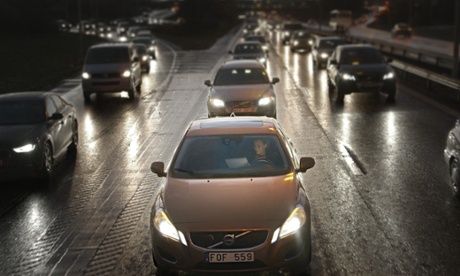
Volvo will test 100 of its autonomous cars on public roads driven in normal traffic by members of the public by 2017.
The car manufacturer announced a collaboration with Swedish legislators and transport authorities to test the cars on 30 miles of roads around Gothenburg by 2017, marking Volvo’s first public pilot of fully autonomous vehicles.
“We are entering uncharted territory in the field of autonomous driving,” said Peter Mertens, senior vice president of research and development for Volvo. “Taking the exciting step to a public pilot, with the ambition to enable ordinary people to sit behind the wheel in normal traffic on public roads, has never been done before.”
Participants in the trial will have to be sober and competent to take over controls at any time. Volvo claims its Drive Me system is capable of handling a range of driving conditions including “smooth commuting to heavy traffic and emergency situations” although its test roads will be without pedestrians, cyclists or on-coming traffic.
The pilot forms part of Volvo’s ambitious plan to make it so that no one is either seriously injured or killed in one of its cars from 2020, which the company says is only possible by integrating automated technology.
Volvo has taken a slightly different approach to automated vehicles compared to most car manufacturers and technology companies, including Google. Its first tests were of road trains on motorways, where drivers could join a line of cars that would autonomously match speed and follow the lead car.
But this new test will take the company’s full autonomous system out into the real world.
“It is relatively easy to build and demonstrate a self-driving concept vehicle, but if you want to create an impact in the real world, you have to design and produce a complete system that will be safe, robust and affordable for ordinary customers,” said Erik Coelingh one of Volvo’s technical specialists. “Making this complex system 99% reliable is not good enough. You need to get much closer to 100% before you can let self-driving cars mix with other road users in real-life traffic.”
Volvo is concentrating on cars made for a traditional ownership model. Other groups, including projects running in the UK and Google’s self-driving cars are looking at autonomous vehicles as a form of public transport.

